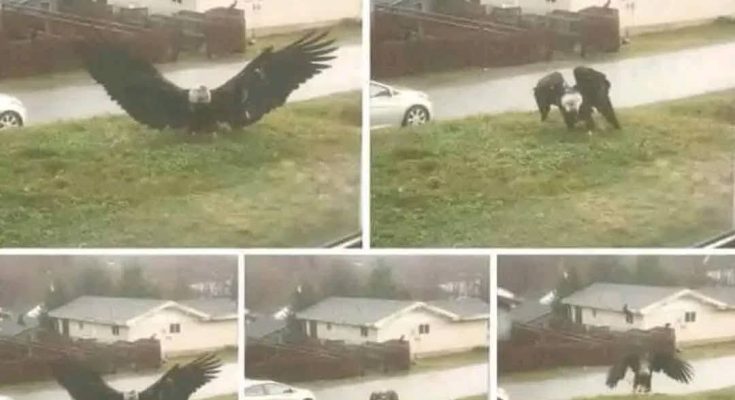Recent viral social media posts have claimed that a “giant eagle” with an unusually large wingspan was captured near the U.S.–Mexico border. However, as of now, no official wildlife or scientific organization has confirmed the existence or capture of such a bird.
What Sparked the Viral Claim?
Images and videos circulating online depict what appears to be an unusually large bird, allegedly spotted or captured in the Brownsville area. However, these images have not been authenticated by credible institutions, and no statements have been released by:
- Texas Parks and Wildlife Department (TPWD)
- U.S. Fish and Wildlife Service (USFWS)
- Cornell Lab of Ornithology
- National Audubon Society
Known Eagle Species in North America
According to experts and databases maintained by ornithological authorities, the largest eagles native to or seen in North America include:
- Golden Eagle (Aquila chrysaetos): Wingspan up to 7.7 feet
- Bald Eagle (Haliaeetus leucocephalus): Wingspan up to 7.5 feet
- Harpy Eagle (mostly found in Central/South America): Wingspan up to 7.4 feet
A 10-foot wingspan as claimed in the viral story exceeds all known records of living eagle species in North America. No peer-reviewed scientific studies or wildlife tracking data support the presence of a bird of that size in Texas.

Experts Warn Against Misinformation
Ornithologists and conservationists emphasize the importance of verifying wildlife claims. According to the American Bird Conservancy, viral stories about “giant birds” are often the result of:
- Misidentification of known large species
- Optical illusions caused by forced perspective
- Edited or misleading media content
The National Audubon Society urges the public to consult trusted sources and avoid sharing unconfirmed wildlife sightings that can cause confusion or disrupt conservation efforts.
Brownsville: A Real Birding Hotspot
Despite the lack of evidence for a giant eagle, Brownsville is home to diverse birdlife. Located in the Rio Grande Valley, the area is one of the most significant birdwatching destinations in the United States. Species commonly observed include:
- Green Jay
- Aplomado Falcon
- Plain Chachalaca
- Great Kiskadee
The region hosts several protected areas and observation centers such as the World Birding Center, which provide educational programs and promote responsible ecotourism.
No Official Capture Report Filed
As of this writing, no incident reports, wildlife database entries, or scientific documentation have been filed to confirm the capture or discovery of an abnormally large eagle in or near Brownsville. No confirmed images or data have been submitted to government databases or birding registries.

Dangers of Viral Misinformation
Unverified wildlife stories can lead to:
- Public misunderstanding of local ecology
- Unwarranted fear or curiosity that disrupts habitats
- Reduced credibility for legitimate conservation efforts
Wildlife experts advise that any unusual bird sighting should be reported through trusted platforms like eBird, managed by the Cornell Lab of Ornithology, which verifies sightings through community science and expert review.

A Responsible Way to Enjoy Birds
Rather than chasing unconfirmed stories, the public is encouraged to:
- Visit designated birding sites like Resaca de la Palma State Park
- Participate in community bird counts
- Support conservation organizations like Audubon Texas or American Bird Conservancy
Brownsville and the surrounding Rio Grande Valley already host some of the most beautiful and rare bird species in the U.S.—without the need for mythical exaggeration.
Summary
- No official record or confirmation exists of a “giant eagle” capture in Brownsville.
- The largest known eagles in North America top out at around 7.7 feet wingspan.
- Images and posts circulating online are unverified and likely misleading.
- Brownsville remains a real birding destination worth exploring for its rich biodiversity.
Verified Resources
- Texas Parks & Wildlife – Birding
- U.S. Fish and Wildlife Service
- Cornell Lab of Ornithology
- National Audubon Society
- World Birding Center – Rio Grande Valley
